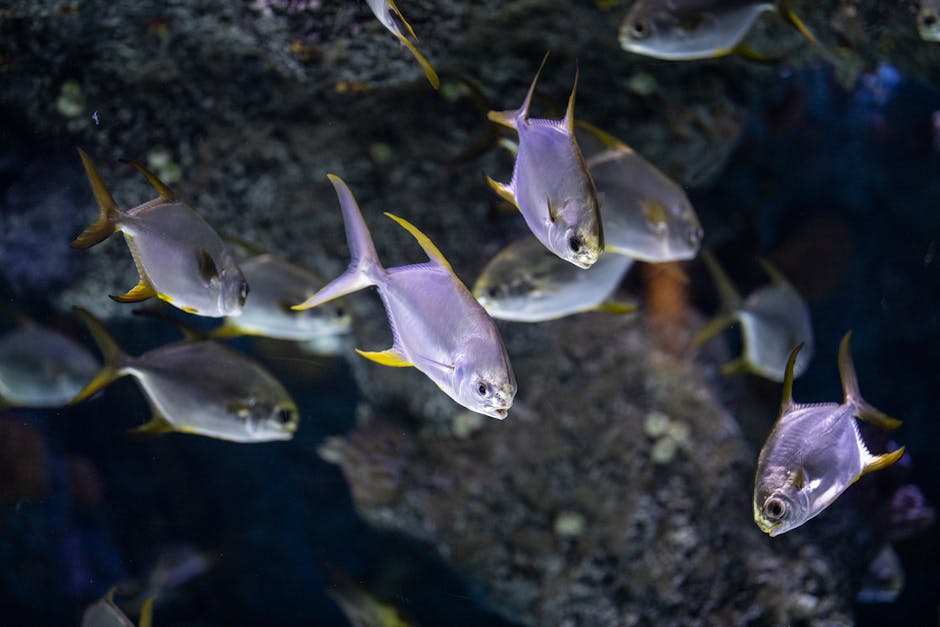Marine aquaculture, the farming of aquatic organisms in the ocean, is poised for a period of significant transformation. Driven by escalating global demand for seafood, coupled with growing concerns about overfishing and environmental impacts of traditional fishing methods, aquaculture is increasingly viewed as a critical component of a sustainable food system. However, the future of this industry requires careful consideration of ecological impacts, technological advancements, and societal expectations. This exploration delves into the evolving landscape of ocean farming, addressing potential challenges and opportunities.
A paradigm shift towards sustainability is already underway. Traditional approaches, often reliant on extensive feed inputs and the discharge of pollutants, are being challenged. Ecologically-sound aquaculture practices are emerging as a crucial component of the future. Integrated multi-trophic aquaculture (IMTA), for instance, aims to optimize resource use by integrating various species, fostering symbiosis and reducing reliance on external feed. In this model, different organisms interact in a synergistic manner, promoting natural nutrient cycling and reducing environmental impacts. Species like shellfish can filter water and remove excess nutrients, while fish can provide food for other species. This approach moves beyond the confines of single-species farming, mimicking natural marine ecosystems and minimizing pollution.
One crucial element shaping the future of aquaculture is the ongoing quest for higher production efficiency. Advances in feed formulation, including the incorporation of alternative protein sources like algae and insects, offer substantial potential. By optimizing feed formulations, aquaculture can minimize reliance on fishmeal and fish oil, reducing the strain on wild fish populations. Similarly, precision feeding strategies, adjusting the amount of food provided based on the specific needs of individual organisms, lead to substantial feed savings and reduced environmental impact. Research into alternative farming systems, like vertical and offshore aquaculture facilities, is also actively exploring innovative approaches to increase density and minimize land use.
Genetic engineering plays an increasingly prominent role in shaping the future of aquaculture. Selective breeding and genetic modification techniques offer the possibility of producing faster-growing, disease-resistant, and more robust fish and shellfish. However, the ethical implications of such interventions deserve careful scrutiny, as do the potential risks of genetically modified organisms (GMOs) interacting with wild populations. Strict regulations and ongoing monitoring are essential to mitigating these risks and ensuring responsible application of this powerful technology.
Furthermore, the development of advanced technologies is profoundly impacting aquaculture practices. Automated feeding systems, real-time monitoring of water quality, and remote sensing technologies are enhancing productivity and sustainability. Smart sensors and data analytics can provide real-time insights into the health and well-being of farmed organisms, facilitating proactive management and reducing disease outbreaks. Furthermore, robotics and artificial intelligence are being explored for tasks like automated harvesting, minimizing human intervention and labour costs.
Oceanographic conditions pose a critical challenge. Climate change is dramatically altering ocean temperatures, salinity, and currents, potentially disrupting the optimal habitats for various farmed species. Adapting farming practices to accommodate these changes and diversifying species cultivated is imperative. Research exploring the effects of ocean acidification, rising sea levels, and other climate-related stressors on farmed organisms is necessary to develop strategies for mitigation and adaptation. Understanding the impacts on growth rates, reproduction, and disease resistance of various organisms is vital.
The integration of aquaculture with other ocean-related activities warrants careful consideration. Conflicts may arise between aquaculture development and other marine sectors, like fisheries or marine protected areas. Strategies for zoning and spatial planning are crucial to managing these overlaps and preventing negative impacts on both human and natural resources. Collaboration between stakeholders, including aquaculture companies, environmental groups, government agencies, and local communities, is essential for creating sustainable and equitable outcomes.
Public perception and consumer demand are also critical factors influencing the future of aquaculture. Transparency and traceability in the supply chain will be essential to ensuring consumer confidence. Information regarding farming practices, environmental impact, and the origin of the farmed products needs to be readily available to consumers. Promoting eco-labeling and certification schemes can help consumers differentiate sustainable from non-sustainable products, encouraging responsible aquaculture practices.
Addressing the social and economic aspects of aquaculture is equally crucial. Concerns about job creation, economic benefits, and the livelihoods of coastal communities must be factored into planning and implementation. Aquaculture should be seen not only as a food production method but also as a means of generating employment and empowering coastal communities.
In conclusion, the future of marine aquaculture is dynamic and complex. While the industry faces significant challenges concerning environmental sustainability, technological advancements, and public perception, there is also considerable potential for innovation and positive impact. By prioritizing sustainability, integrating technology, addressing ecological concerns, and fostering public trust, aquaculture can contribute to a more sustainable and secure food supply for the future. As our understanding of ocean systems expands and our technological capabilities advance, ocean farming can become a vital tool in maintaining the health and productivity of our oceans while satisfying global demand for seafood.






